Team Alimenta #Zerohunger2 awarded Social Hackademy Award 2021
The Social Hackademy Award celebrates young people’s efforts and contributions to solve social challenges around Europe with digital solutions developed in Social Hackademy Labs in Croatia, France, Greece and Italy.
Social Hackademy Labs are grass root laboratories that utilize co-creation methodology for empowering young people with digital and transversal skills while developing digital solutions for various issues on local, national, European or global level.
The Labs are a manifestation of Social Hackademy Methodology which was developed with a support of Erasmus+ programme of the European Union. The Labs feature training courses on digital skills and Social Hackathons.
The Social Hackademy Award 2021 was organized during the Social Hackademy International Conference that took place on 15 October 2021 during ALL DIGITAL Summit 2021.
The Social Hackademy Award 2020 was awarded to Team Alimenta #Zerohunger2 from Italy.
The winner was selected by a special jury panel composed experts in digital skills development, ICT, social entrepreneurship, co-creation processes and project development. The jury panel members for Social Hackademy Award 2021 were:
– Alessia Sebillo, Executive Director at Diesis
– Alexander Knoth, Chief Digital Officer & Head of Section Digitalisation at German Academic Exchange Service
– Barbara Quarta, Chief Programme Officer at ALL DIGITAL
– Milan Stajčić, Advisor for Development of Digital Services at Out of the Box International
– Tiana Zignani, Programme Officer at Public Libraries 2030
Four teams competed for the Social Hackademy Award 2021 were:
1. Winner of the Social Hackathon Rijeka (Croatia)
Team name: IT Girls
Team members: Marija Siladjev, Lana Prar
Short description of the solution:
Mobile app Fenix App – Mood Tracker aims to help people with different mental difficulties to keep track of their moods and activities that led to these moods in order to help them focus on the positive. It also provides tips and has additional options that allow users to achieve and maintain a state of remission and mental stability.
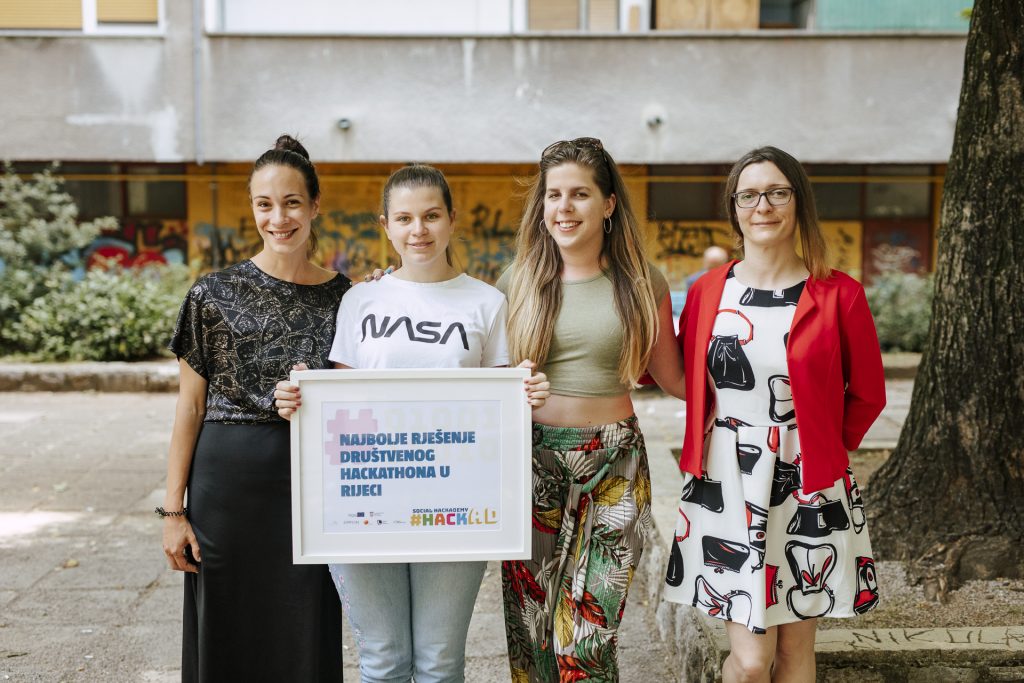
2. Winner of the Social Hackathon Montpellier (France)
Team name: Feminist Surge
Team members: Nicolas Prodhomme, Sarah Truffert, Roxane Cabit, Fatima Melkaoui, Julien Pablo and Violeta Rodríguez Porras
Short description of the solution:
The team developed a website that offers information, guidance, advice and support for people that are victims of violence and/or social exclusion because of their gender, minority status, identities and age in city of Montpellier. In addition to that, the website used by local collective called #NousToutes34 also support the work of the collective by providing directory of supporting structures (legal and psychosocial, medical), Lien Hello Asso (fundraising link) and membership site.
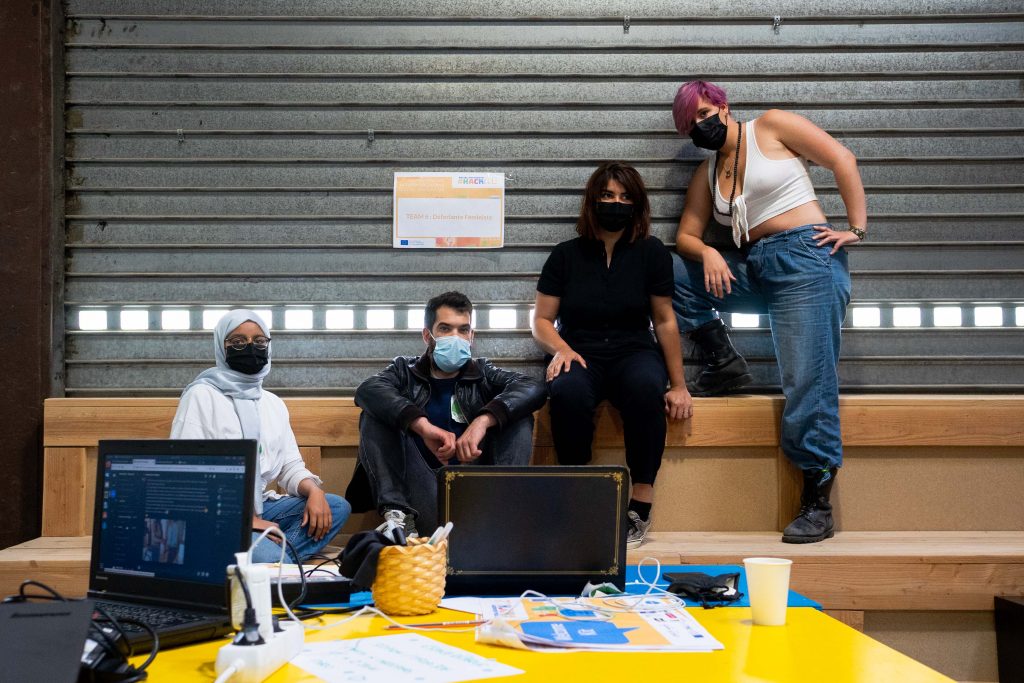
3. Winner of the Social Hackathon Patras (Greece)
Name of the team: The Coding Gang
Team members: Lazarinis Lefteris, Kostaras Fotis
Short description of the solution:
The Coding Gang has created an application to help the environmental problem caused by weeds destroying the local flora. The application has three main dimensions.
First, it informs the user about problems that have been identified near their location. It detects the user’s location and displays markers on a map with nearby problems. Clicking on a marker displays a brief description of the problem.
The second dimension concerns the user’s ability to inform the environmental organization of the existence of a problem. The application allows the user to take a photo and a video of the problem and email or post them along with some description of the problem and the location.
The last option displays general information about the purposes of the environmental organization and about the problem that the application deals with.
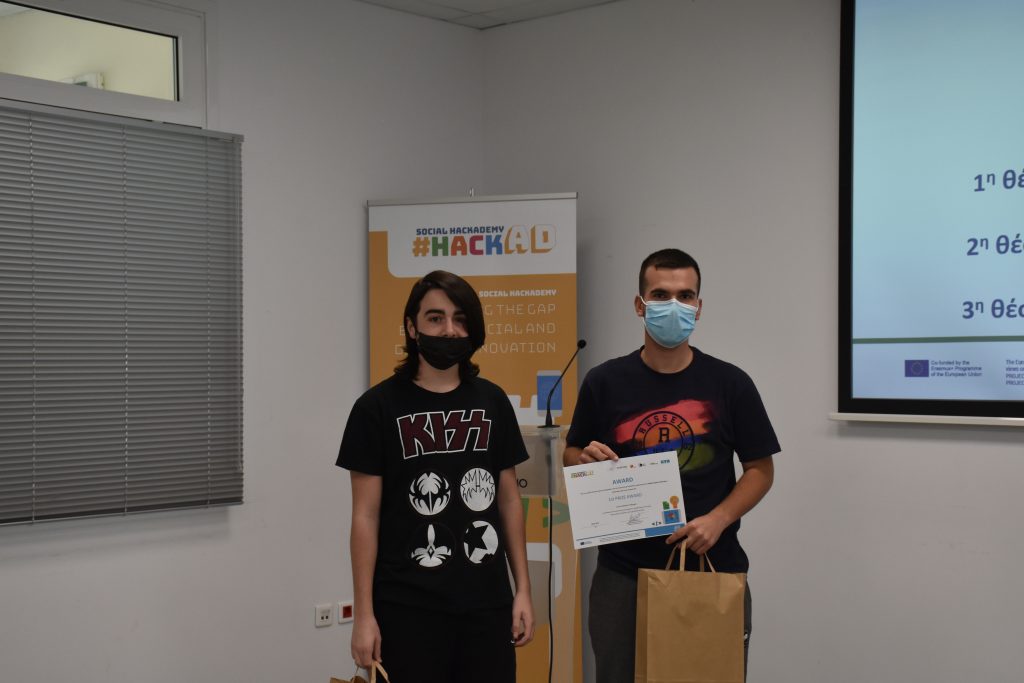
4. Winner of the Social Hackathon Umbria (Italy)
Team name: #Zerohunger2
Team members: Andrea Emili, Giacomo Torti, Scharon Torretti, Alberto Fecchi, Alessandro Masci
Short description of the solution:
Project Alimenta’s objectives are to (1) use open data from FAO to design virtual villages with the aim of showing local social and economic issues in developing countries and (2) raise awareness about different and difficult contexts and issues in the world (especially in developing countries). The solution targets young people, in particular video games players and communities of players. Alimenta is app that uses gamification, real world simulation and auto-learning. Through the app players learn and discover contexts and situations of villages in developing countries that are struggling with food production and supply, water supply and related economical and social issues. The game itself aims to educate and boost the imagination of solutions to real issues and can also promotes donations. Players from real villages are also enabled to support the project and FAO by updating real data/information.
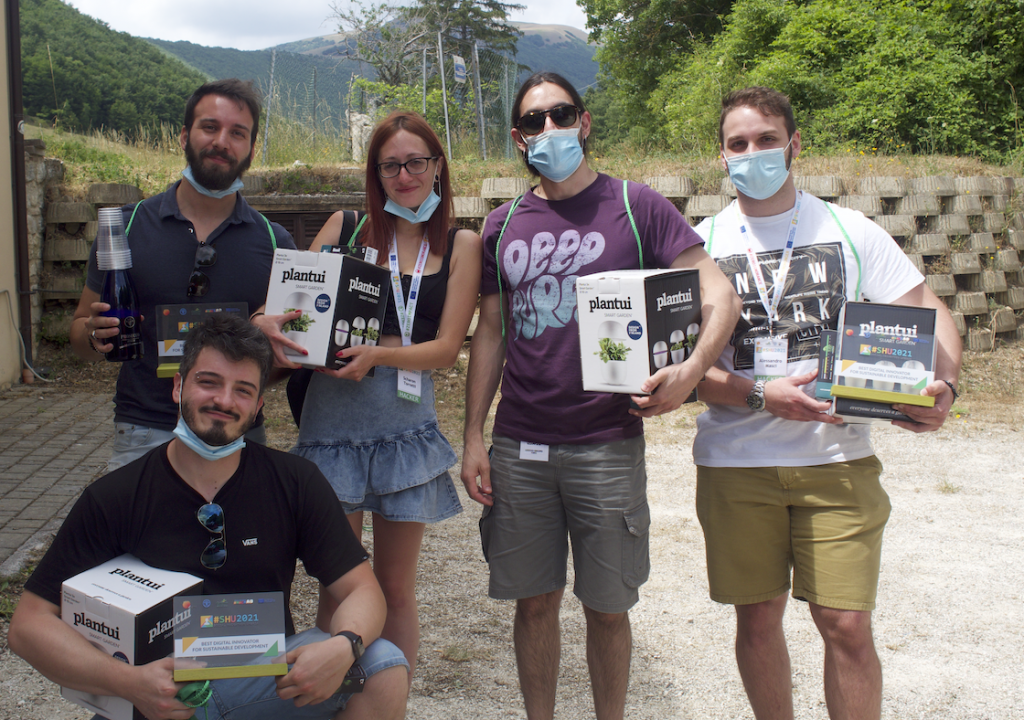


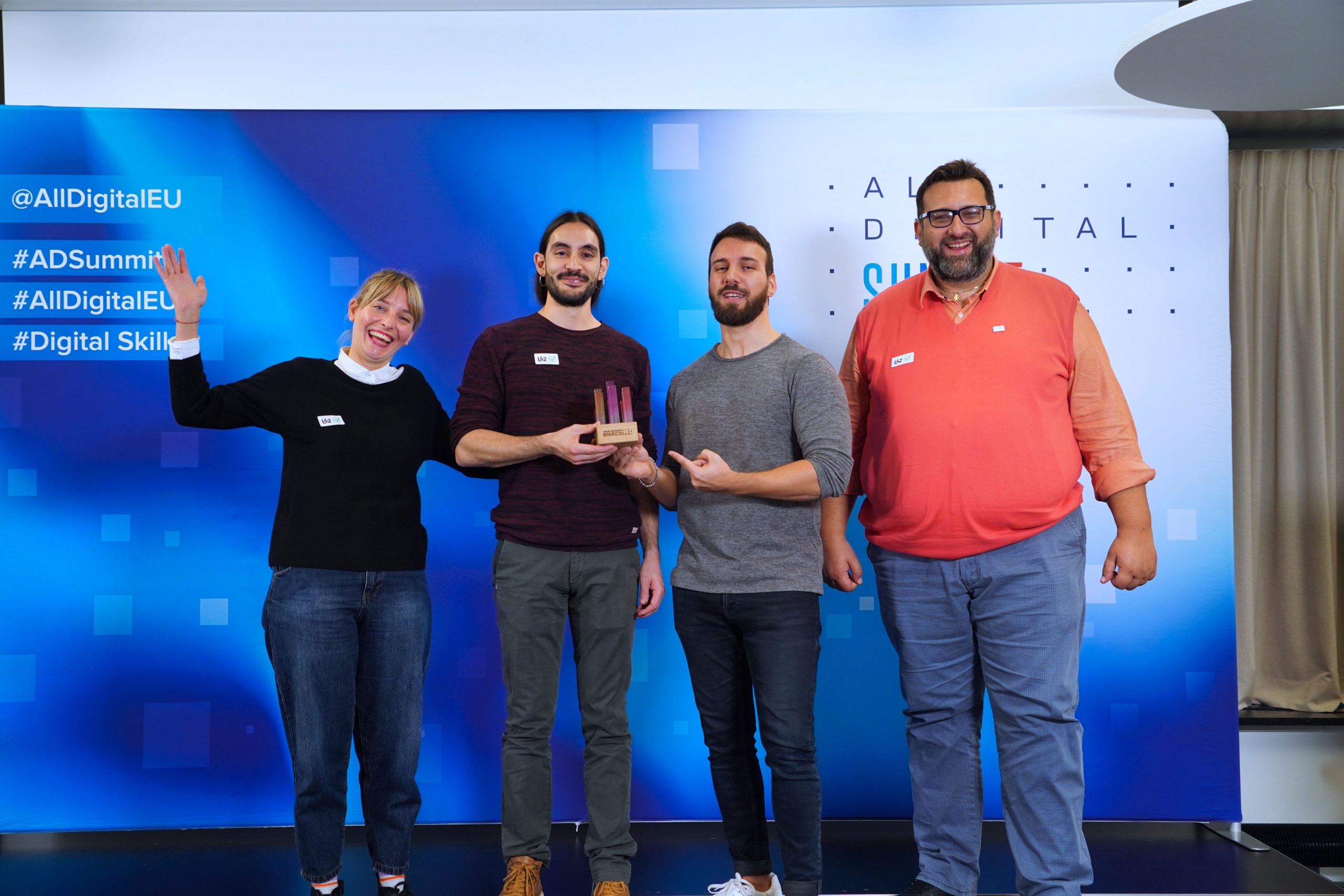

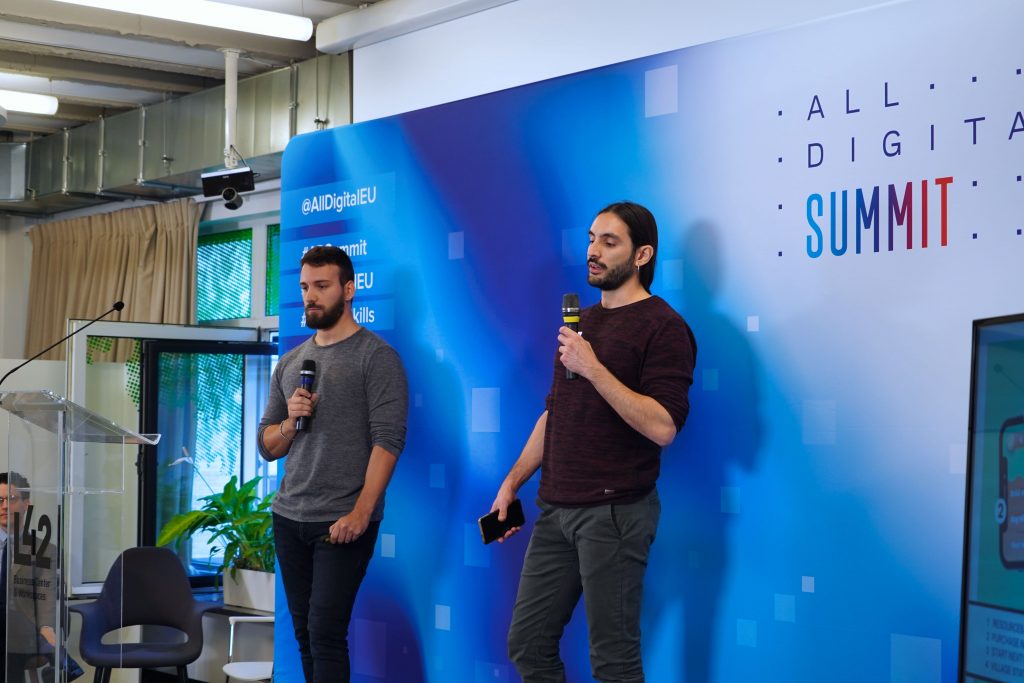
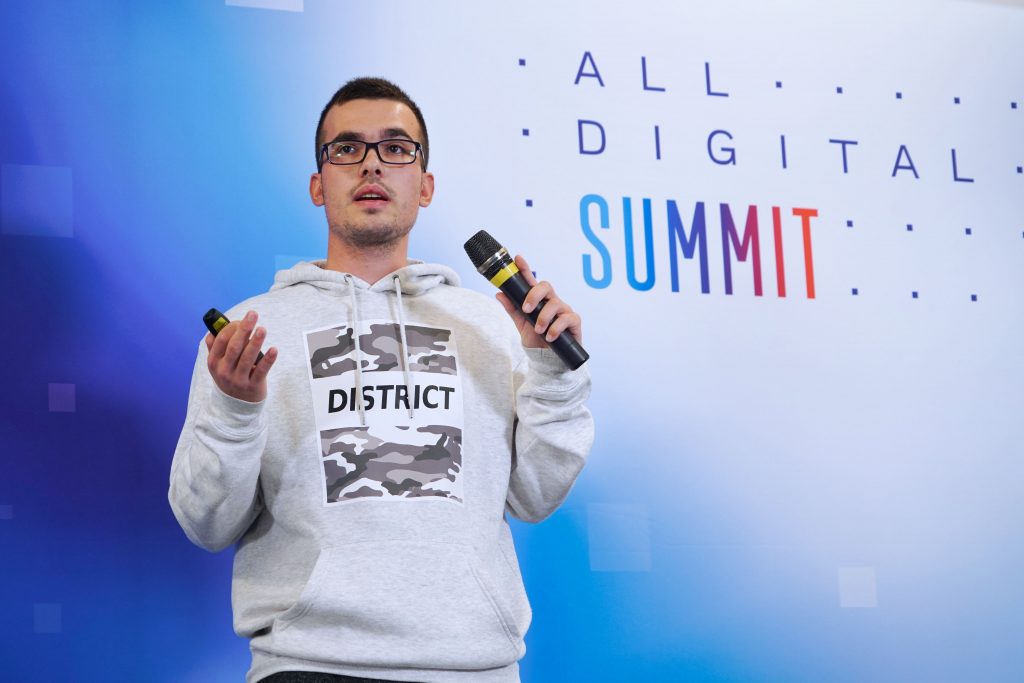
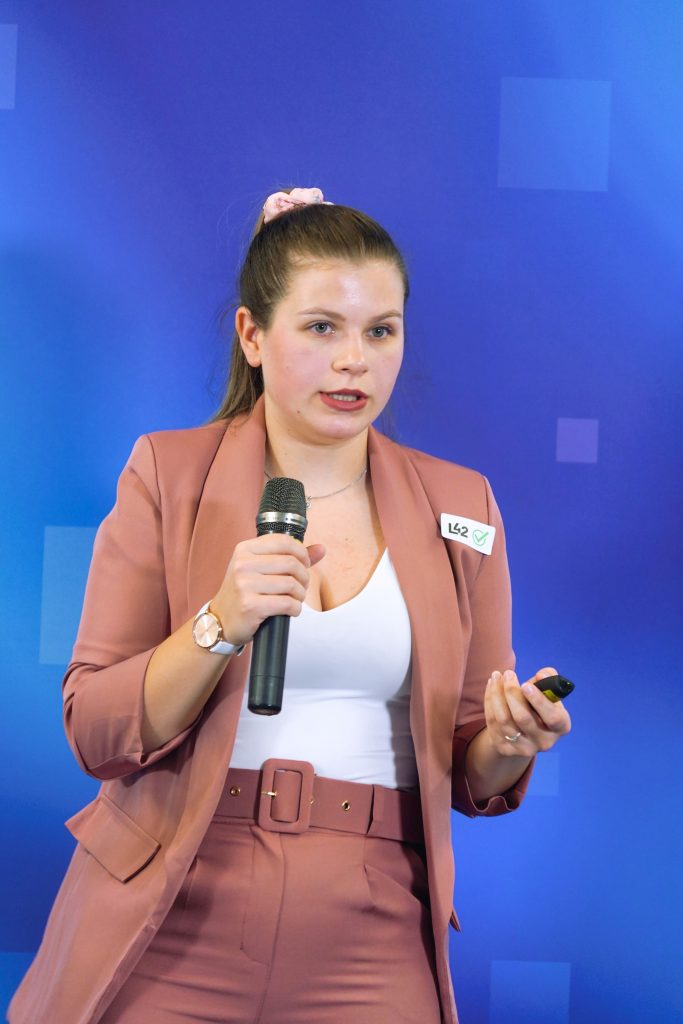
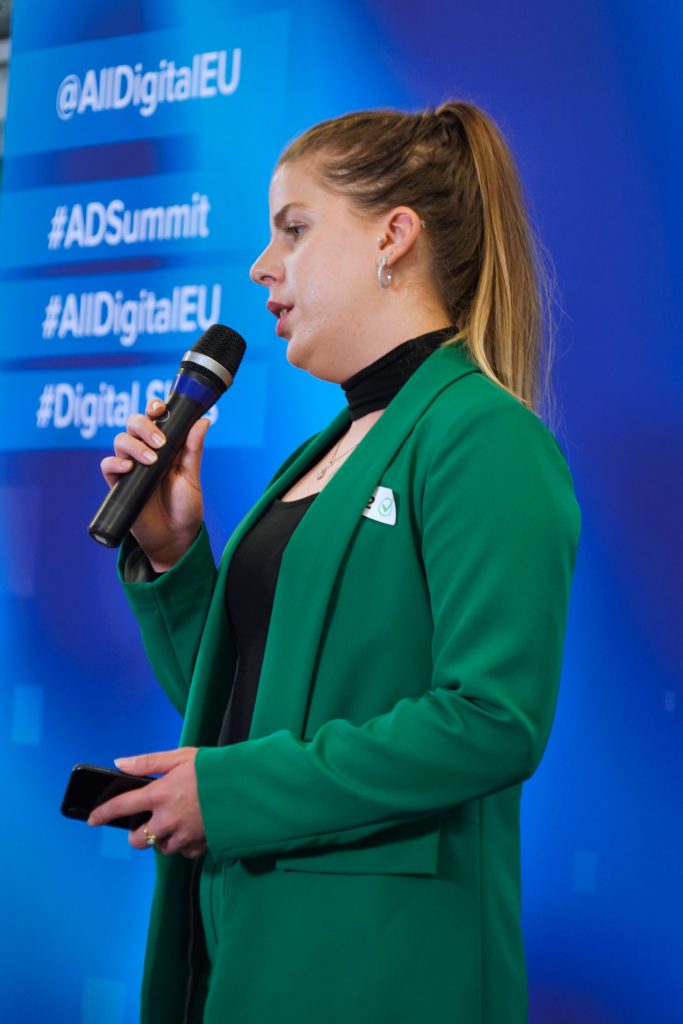
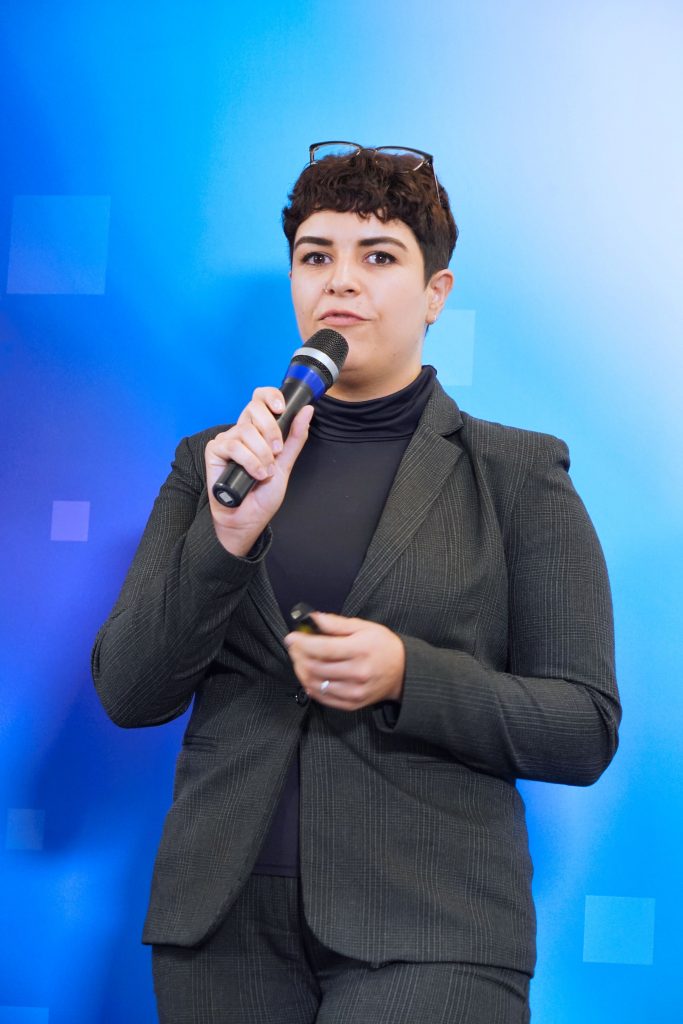
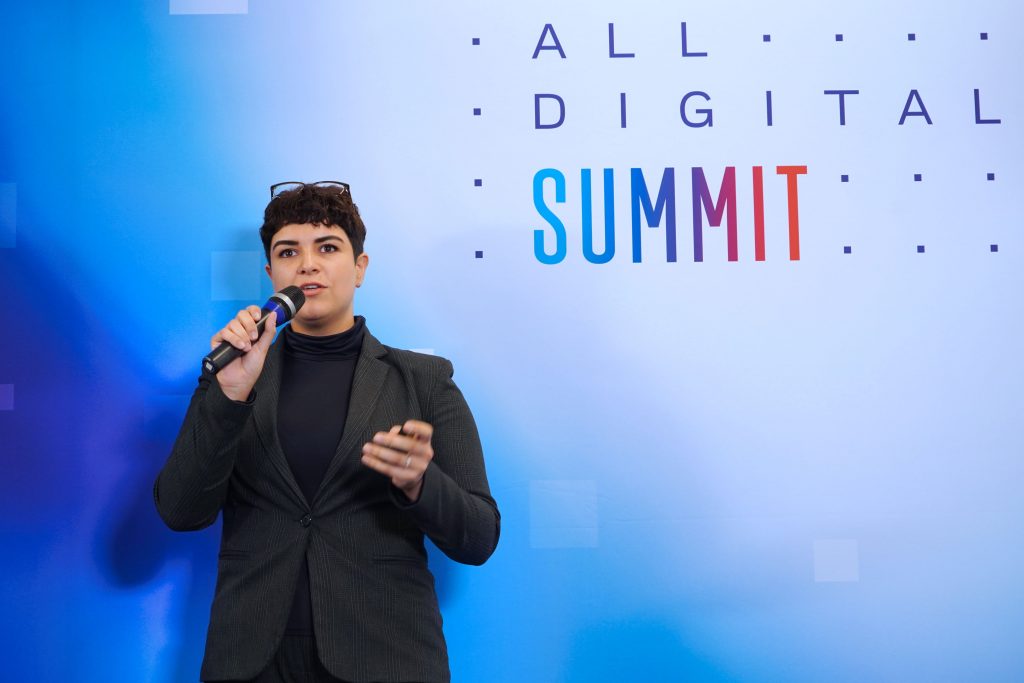
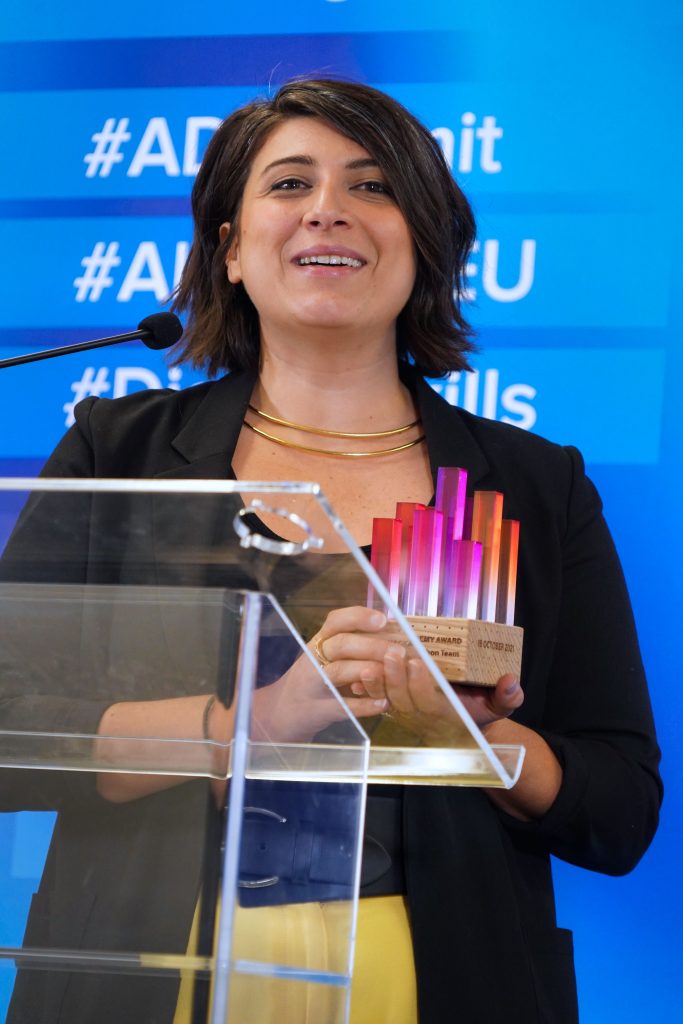
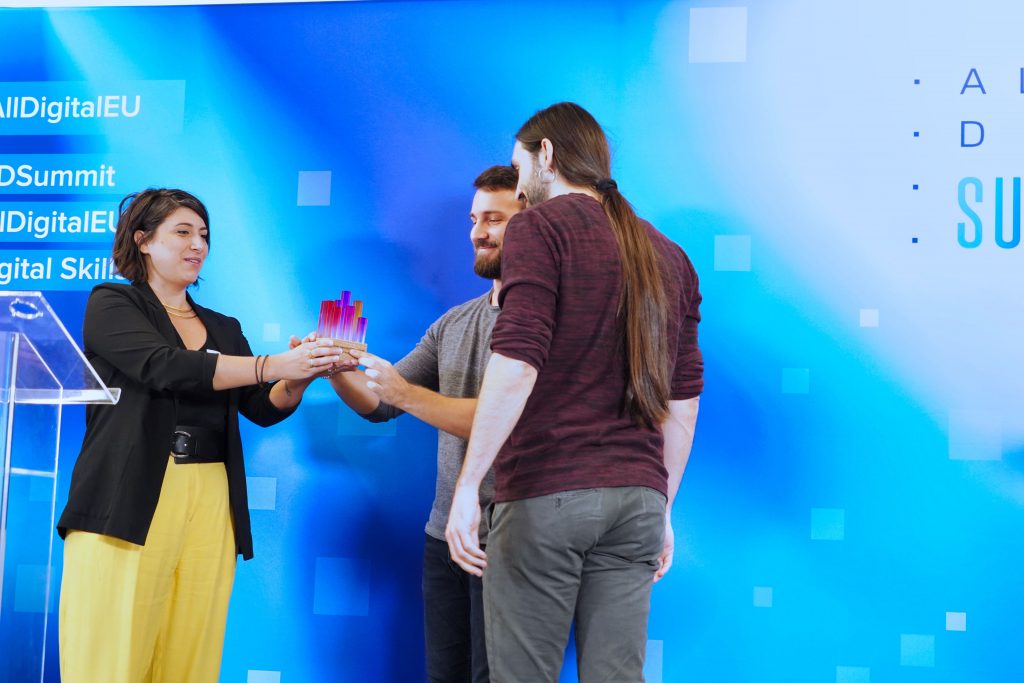
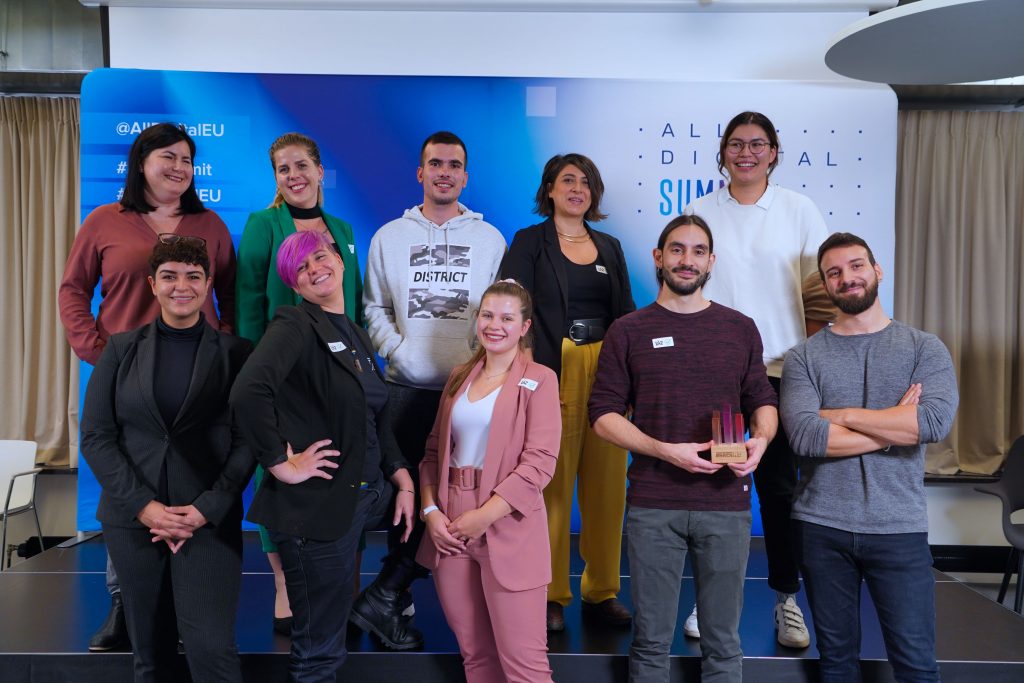
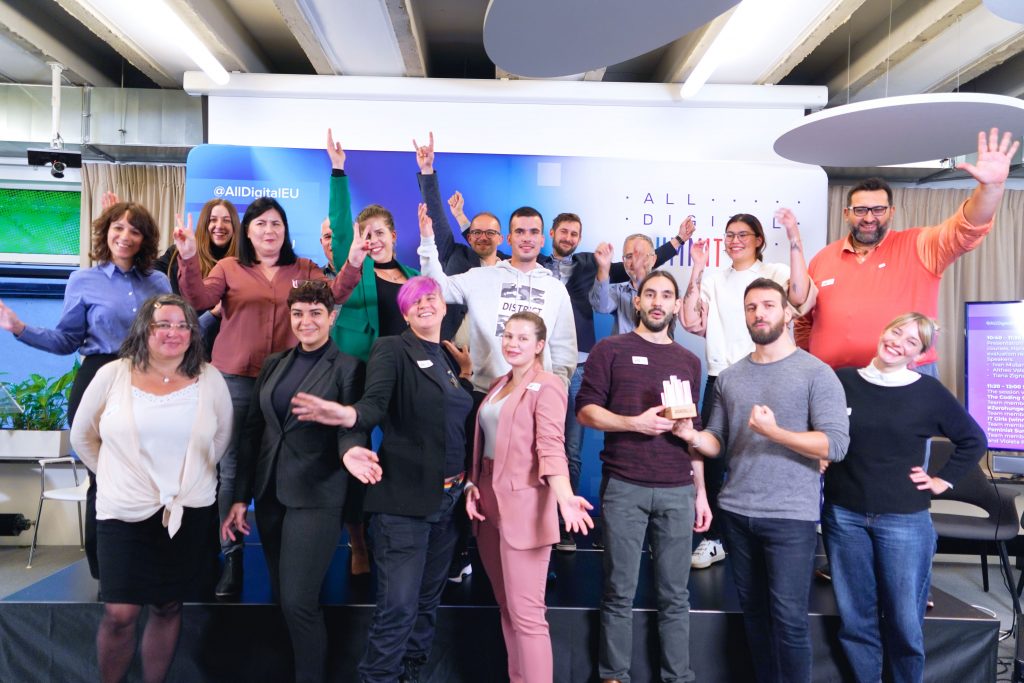
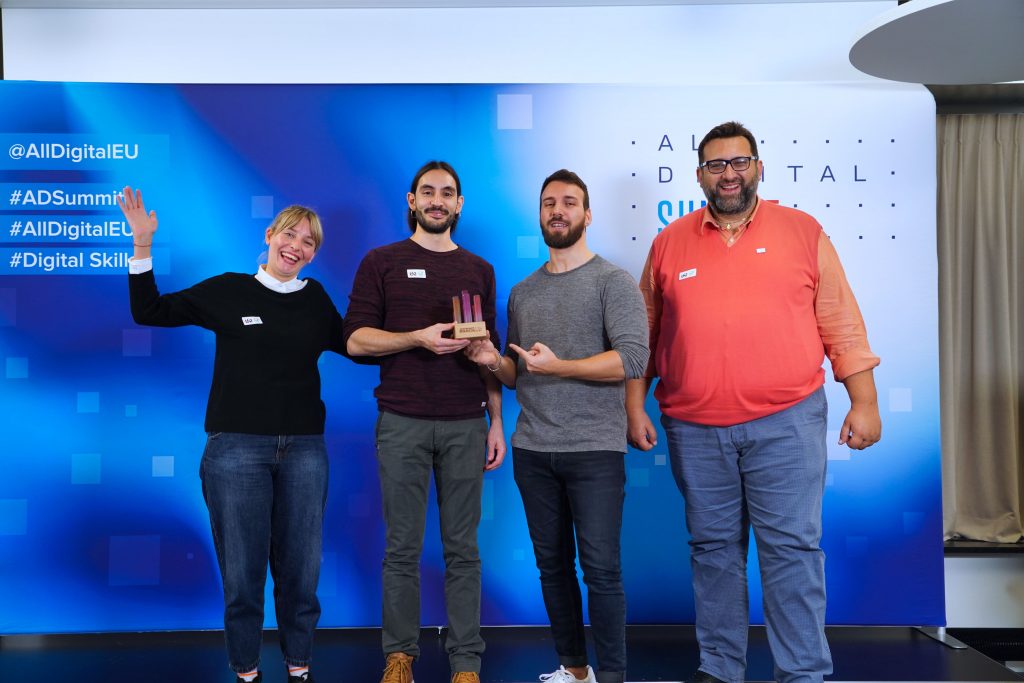
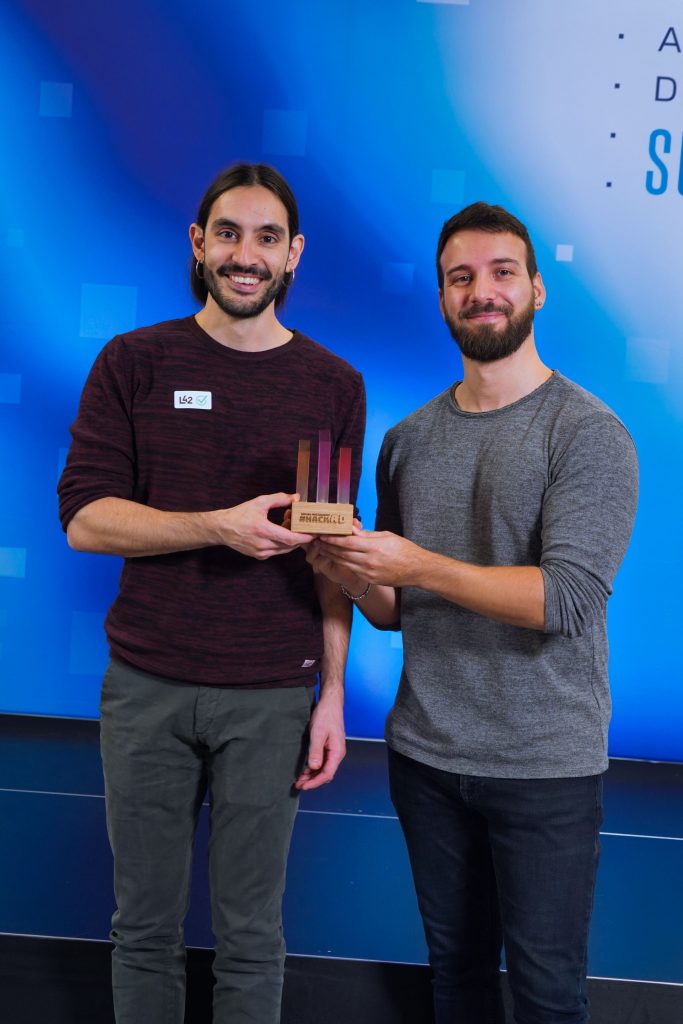


No Comments